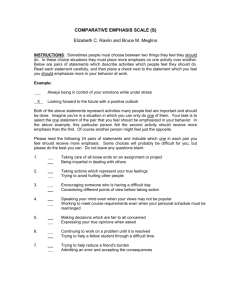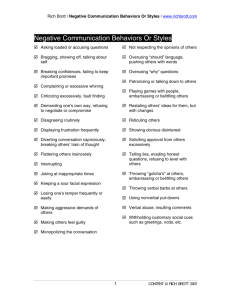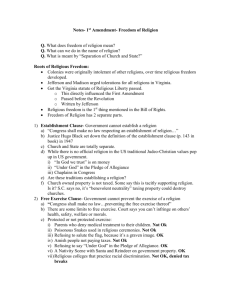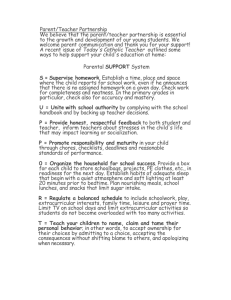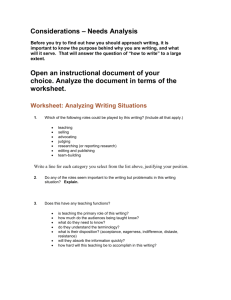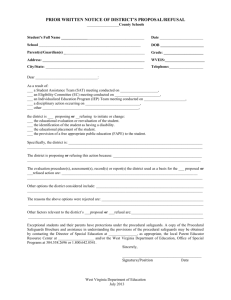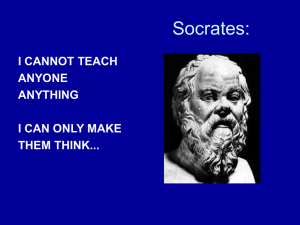comparative emphasis scale
advertisement
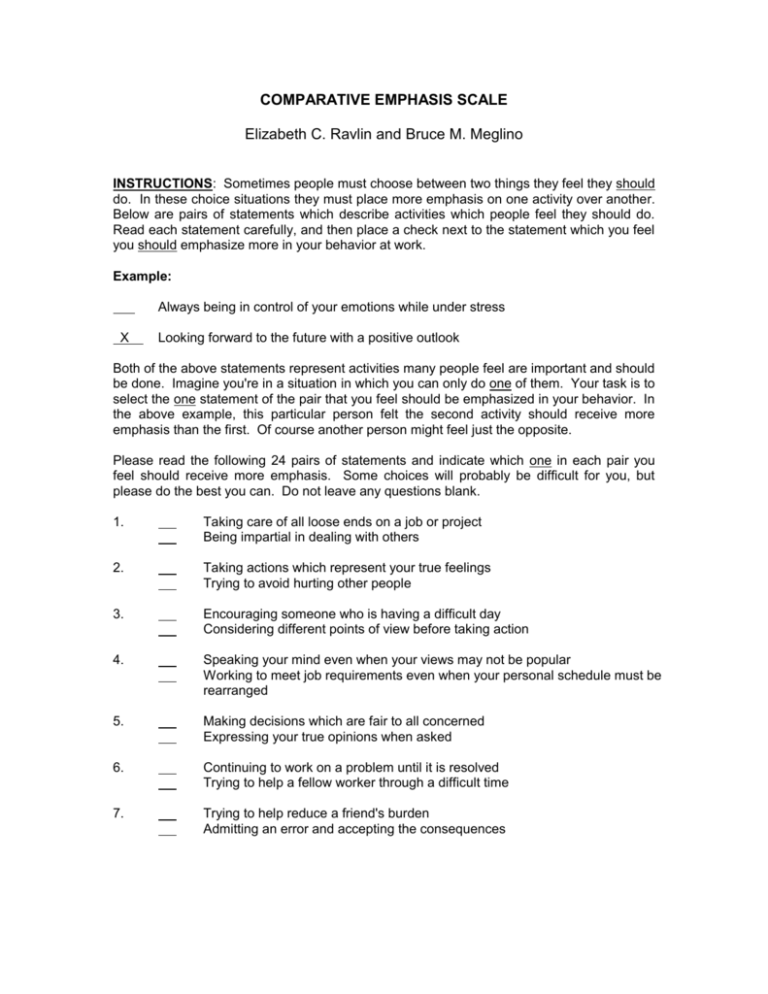
COMPARATIVE EMPHASIS SCALE Elizabeth C. Ravlin and Bruce M. Meglino INSTRUCTIONS: Sometimes people must choose between two things they feel they should do. In these choice situations they must place more emphasis on one activity over another. Below are pairs of statements which describe activities which people feel they should do. Read each statement carefully, and then place a check next to the statement which you feel you should emphasize more in your behavior at work. Example: Always being in control of your emotions while under stress X Looking forward to the future with a positive outlook Both of the above statements represent activities many people feel are important and should be done. Imagine you're in a situation in which you can only do one of them. Your task is to select the one statement of the pair that you feel should be emphasized in your behavior. In the above example, this particular person felt the second activity should receive more emphasis than the first. Of course another person might feel just the opposite. Please read the following 24 pairs of statements and indicate which one in each pair you feel should receive more emphasis. Some choices will probably be difficult for you, but please do the best you can. Do not leave any questions blank. 1. Taking care of all loose ends on a job or project Being impartial in dealing with others 2. Taking actions which represent your true feelings Trying to avoid hurting other people 3. Encouraging someone who is having a difficult day Considering different points of view before taking action 4. Speaking your mind even when your views may not be popular Working to meet job requirements even when your personal schedule must be rearranged 5. Making decisions which are fair to all concerned Expressing your true opinions when asked 6. Continuing to work on a problem until it is resolved Trying to help a fellow worker through a difficult time 7. Trying to help reduce a friend's burden Admitting an error and accepting the consequences 8. Being impartial in judging disagreements Helping others on difficult jobs 9. Taking on additional tasks to get ahead Admitting to making a mistake rather than covering it up 10. Offering help to others when they are having a tough time Doing whatever work is required to advance in your career 11. Always being truthful in dealing with others Giving everyone an equal opportunity at work 12. Judging people fairly based on their abilities rather than only on their personalities Seeking out all opportunities to learn new skills 13. Trying to be helpful to a friend at work Being sure that work assignments are fair to everyone 14. Refusing to take credit for ideas of others Maintaining the highest standard for your performance 15. Being determined to be the best at your work Trying not to hurt a friend's feelings 16. Trying to bring about a fair solution to a dispute Admitting responsibility for errors made 17. Finishing each job you start even when others do not Making sure that rewards are given in the fairest possible way 18. Refusing to tell a lie to make yourself look good Helping those who are worried about things at work 19. Trying as hard as you can to learn as much as possible about your job Taking a stand for what you believe in 20. Sharing information and ideas which others need to do their job Always setting high performance goals for yourself 21. Refusing to do something you think is wrong Providing fair treatment for all employees 22. Allowing each employee to have an equal chance to get rewards Taking on more responsibility to get ahead in an organization 23. Correcting others' errors without embarrassing them Holding true to your convictions 24. Providing fair treatment for each employee Lending a helping hand to someone having difficulty
